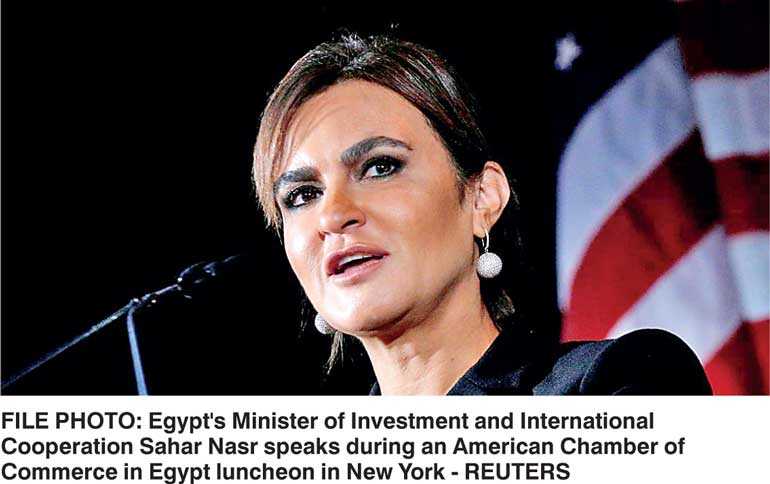Thursday Feb 26, 2026
Thursday Feb 26, 2026
Monday, 15 October 2018 00:00 - - {{hitsCtrl.values.hits}}

NUSA DUA, Indonesia (Reuters) - Egypt is only accepting Chinese investments in projects that are mutually beneficial, its investment minister said on Sunday, amid growing skepticism in some countries about risks tied to ‘Belt and Road’ investments.
The Belt and Road initiative is an ambitious plan to expand the trade corridor for the Asian giant to link Asia, Europe and Africa, pumping credit into building roads, railways and ports in a trillion-dollar infrastructure drive.
Egypt and China had signed deals worth $18 billion as part of the Belt and Road initiative, Investment and International Cooperation Minister Sahar Nasr said in an interview on the sidelines of the International Monetary Fund-World Bank meetings in Bali.
Nasr said Egypt was only accepting mutually beneficial projects.
“If we have more Chinese industries in Egypt, creating jobs for us, making us less dependent on certain imports and in fact exporting to Europe to Africa, it’s a win-win,” she said.
Nasr said Egypt was taking care to diversify its source of financing, even within the same sector, noting that while China was involved in building a railway, locomotive and train carriages were being sourced from elsewhere.
Malaysia, one of the top recipients of China’s largesse, recently suspended work on a $20 billion rail link between its east and west coasts with the Malaysian prime minister describing terms for the project as “damaging” to its economy. The Belt and Road initiative has also been met with growing scepticism in countries such as Sri Lanka, which have been saddled with debt that is difficult to repay.
China’s vice finance minister Zou Jiayi on Saturday acknowledged debt issues with some of Belt and Road projects, saying the government would strengthen macro-supervision on the debt sustainability aspect of its overseas investments.
The biggest foreign investors in Egypt are currently European countries, as well as the United States.
Nasr said Egypt, which is undertaking deep reform after a 2016 deal with the IMF, was a bridge between Asia and Africa due to access to the Suez canal and trade agreements with the rest of Africa.
She said China’s Belt and Road investments included energy projects, a railway, real estate and an oil refinery.
The minister is targeting $10 billion in foreign direct investment (FDI) in the 2018/19 fiscal year, up from $7.9 billion in the year ended June 2018.
Nasr also said she wants local companies to invest more because “if the foreign investors don’t think the Egyptian investors are confident and reinvesting in Egypt it will be very difficult for me to bring in FDI.”